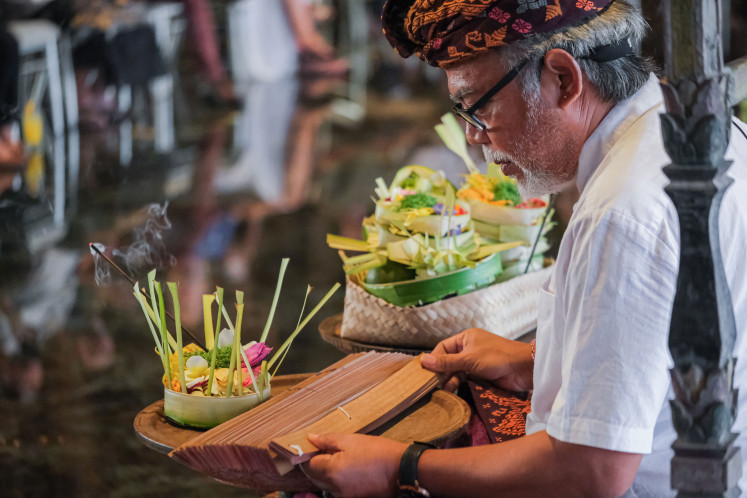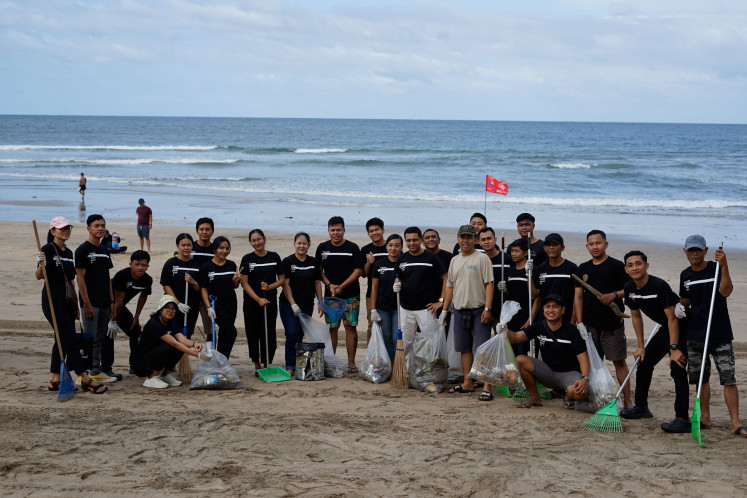‘New normal’ fashion trends: The rise of sustainable fashion, local pride
This is the time of the year when fashion enthusiasts usually welcome new collection as the seasons change.
Change Size
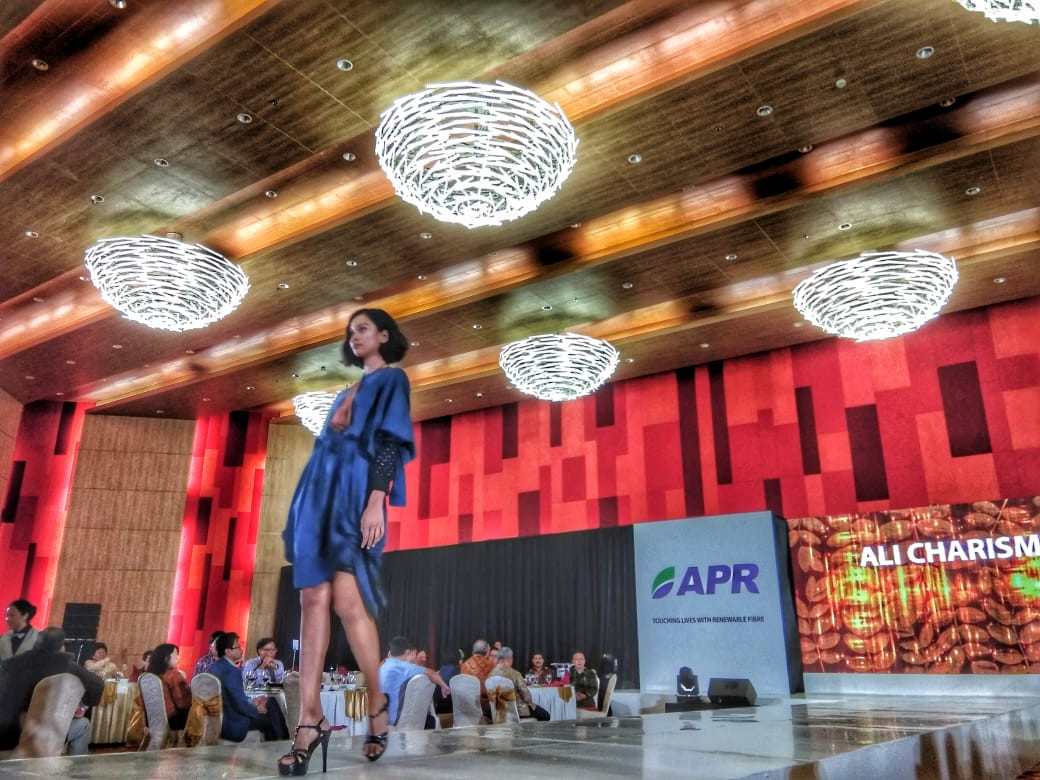 Sustainable fashion takes center stage: A model presents a viscose-rayon dress designed by Indonesia Fashion Chambers chairman Ali Charisma in collaboration with Asia Pacific Rayon.
Sustainable fashion takes center stage: A model presents a viscose-rayon dress designed by Indonesia Fashion Chambers chairman Ali Charisma in collaboration with Asia Pacific Rayon.
T
his is the time of the year when fashion enthusiasts usually welcome new collection as the seasons change. However, with the whole world going through an extraordinary time that demands change in every aspect of life, we are bound to see change in fashion.
History has shown that fashion is reflective of what the world is going through. Many sources cite that people during World War II had to comply with clothes rationing, which prevented them from having as many clothes as they needed, and with certain materials unavailable, people had to make do with the lower-quality materials still available or have new materials created. But, the direction of fashion can change as soon as time changes. As World War II ended, for instance, fashion house Dior created a new look highlighting voluminous skirts and tiny waists, as if catering to people’s need to celebrate and start afresh.
The health crisis we are facing now is also expected to lead to changes in fashion.
Vibrant colors are believed to be the next trend of the so-called “new normal” era, as people seek to express a sense of freedom after spending so long in lockdown. It also shows how people are craving a creative outlet during this pandemic.
Margie Untoro, editor in chief of homegrown fashion magazine, Dewi, said in a webinar titled “Fashion – The New Normal” held by Asia Pacific Rayon (APR) that it was likely colorful themes would be the trend of the upcoming Spring/Summer season.
While many people chose to wear loungewear while working at home, as it is more relaxed, they still dress up to keep their spirits up and to stay aware of the boundary between home life and work life.
Regardless of the upcoming trends, Margie pointed out that the fashion industry was facing serious challenges. Many global brands – especially fast fashion brands – are closing stores and halting production. At the same time, she thinks this presents a big opportunity for local brands.
The rise of local brands could also be an outcome of the pandemic, as “consumers have also become smarter and more conscious, and will only buy from brands that they share similar values with,” according to Margie, who also pointed out that there had been a significant rise in demand for local products as people became more conscious of the issues with the fast fashion industry and the damage it had done to the environment.
“Local brands are considered more exclusive,” Margie reasoned.
The rise of local brands and the decline of fast fashion indicates that a focus on sustainable lifestyles will also be part of upcoming fashion trends.
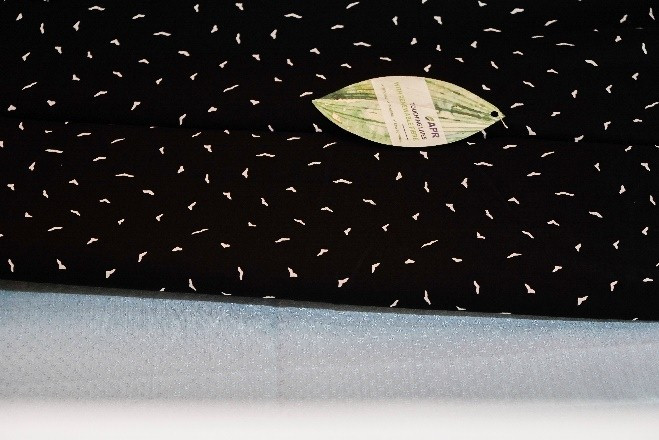
Local pride contributes to sustainable fashion
With people becoming more conscious of environmental issues and good life values during the pandemic, sustainable fashion is expected to grow, giving a boost to local brands that are working hard and campaigning on sustainability.
One Indonesian-based company that produces sustainable materials for textiles is Asia Pacific Rayon (APR). As the largest integrated viscose-rayon producer in Asia, APR is carrying the spirit of “Everything Indonesia” to encourage the growth of Indonesia’s textile industry.
When it comes to manufacturing sustainable textile materials, APR is a leader, as it uses natural fibers. Wood pulp is sourced from certified plantations and then dissolved and extracted into strands of cellulose fiber to make biodegradable viscose rayon.
Apart from being sustainably manufactured and biodegradable, APR’s viscose rayon products absorb moisture and dye better, and are also soft and comfortable – perfectly suited for the Indonesian climate.
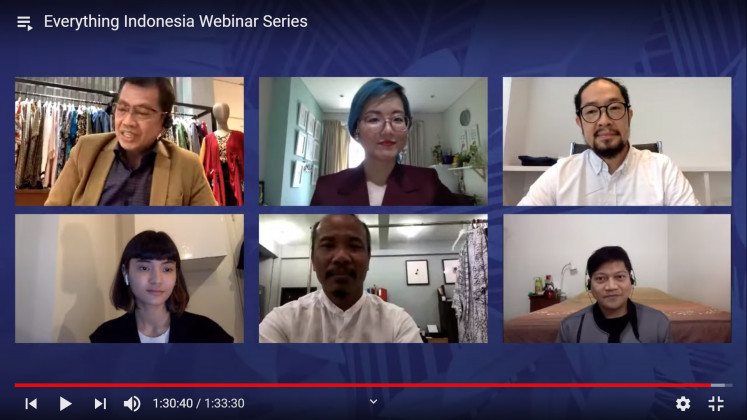
Ali Charisma, a fashion designer and chairman of the Indonesia Fashion Chamber (IFC), said during the webinar that as a designer he found that viscose-rayon was perfect for making clothes that were comfortable to wear at home but also presentable for video conferencing.
He said that as a sustainable material, viscose rayon could be used for ethical fashion, which is a core principle of many local brands.
“During this pandemic people will think more carefully and realize that sustainability is not only about fashion but also about the lifestyle they and their families choose to lead,” said Ali.
Beyond being an expression of “local pride”, wearing local brands is the antithesis to participating in environmentally harmful fast fashion.
“Express your local pride by buying and wearing local fashion brands,” said Ali.
At the end of the webinar, APR director Basrie Kamba concluded that in order to foster the resilience of Indonesia’s fashion industry, many parties, including consumers, designers, fashion brands, media and producers, must unite to promote local pride by wearing Indonesian-made fashion.
“Textile and ready-to-wear industry players in Indonesia have no reason to experience a slump. [There is] no reason they can’t win in this competition that has grown tighter and more sensitive. Don’t stop learning, exploring, collaborating with all your heart with local brands, designers, academics and others. Buy local products,” said Basrie.





